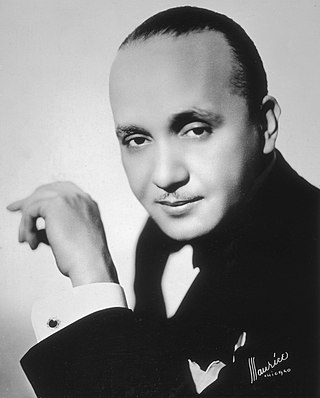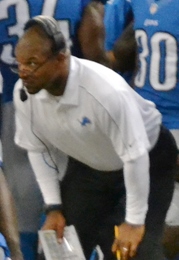Related Research Articles

Frederick Douglass was an American social reformer, abolitionist, orator, writer, and statesman. After escaping from slavery in Maryland, he became a national leader of the abolitionist movement in Massachusetts and New York, during which he gained fame for his oratory and incisive antislavery writings. Accordingly, he was described by abolitionists in his time as a living counterexample to enslavers' arguments that enslaved people lacked the intellectual capacity to function as independent American citizens. Northerners at the time found it hard to believe that such a great orator had once been enslaved. It was in response to this disbelief that Douglass wrote his first autobiography.

Highland Beach is a town in Anne Arundel County, Maryland, United States. Per the 2020 census, the population was 118. The town was founded late in the 19th century by affluent African Americans from Washington, D.C., and Baltimore, looking for a summer retreat on the Chesapeake Bay. The town's incorporated status gave it a unique standing in empowering it to maintain its own police force. Celebrities with homes there have included historian and author Alex Haley, actor and comedian Bill Cosby, and tennis champion Arthur Ashe. Street names in the town include Crummell, Dunbar, Henson, Augusta, Douglass, Langston, and Washington, which were chosen to honor leading African Americans.

Cabell Calloway III was an American jazz singer and bandleader. He was associated with the Cotton Club in Harlem, where he was a regular performer and became a popular vocalist of the swing era. His niche of mixing jazz and vaudeville won him acclaim during a career that spanned over 65 years.

James Fletcher Hamilton Henderson was an American pianist, bandleader, arranger and composer, important in the development of big band jazz and swing music. He was one of the most prolific black musical arrangers and, along with Duke Ellington, is considered one of the most influential arrangers and bandleaders in jazz history. Henderson's influence was vast. He helped bridge the gap between the Dixieland and the swing eras. He was often known as "Smack" Henderson.

The Jazz Age was a period in the 1920s and 1930s in which jazz music and dance styles gained worldwide popularity. The Jazz Age's cultural repercussions were primarily felt in the United States, the birthplace of jazz. Originating in New Orleans as mainly sourced from the culture of African Americans, jazz played a significant part in wider cultural changes in this period, and its influence on popular culture continued long afterwards.

Charles Louis Brown was an American guitarist, bandleader and singer known as "The Godfather of Go-Go". Go-go is a subgenre of funk music developed around the Washington, D.C., area in the mid-1970s. While its musical classification, influences, and origins are debated, Brown is regarded as the fundamental force behind the creation of go-go music.
Theatre Owners Booking Association, or T.O.B.A., was the vaudeville circuit for African American performers in the 1920s. The theaters mostly had white owners, though there were exceptions, including the recently restored Morton Theater in Athens, Georgia, originally operated by "Pinky" Monroe Morton, and Douglass Theatre in Macon, Georgia owned and operated by Charles Henry Douglass. Theater owners booked jazz and blues musicians and singers, comedians, and other performers, including the classically trained, such as operatic soprano Sissieretta Jones, known as "The Black Patti", for black audiences.

Violet Lucille Fletcher was an American screenwriter of film, radio and television. Her credits include The Hitch-Hiker, an original radio play written for Orson Welles and adapted for a notable episode of The Twilight Zone television series. Lucille Fletcher also wrote Sorry, Wrong Number, one of the most celebrated plays in the history of American radio, which she adapted and expanded for the 1948 film noir classic of the same name. Married to composer Bernard Herrmann in 1939, she wrote the libretto for his opera Wuthering Heights, which he began in 1943 and completed in 1951, after their divorce.
The music of Baltimore, the largest city in Maryland, can be documented as far back as 1784, and the city has become a regional center for Western classical music and jazz. Early Baltimore was home to popular opera and musical theatre, and an important part of the music of Maryland, while the city also hosted several major music publishing firms until well into the 19th century, when Baltimore also saw the rise of native musical instrument manufacturing, specifically pianos and woodwind instruments. African American music existed in Baltimore during the colonial era, and the city was home to vibrant black musical life by the 1860s. Baltimore's African American heritage to the start of the 20th century included ragtime and gospel music. By the end of that century, Baltimore jazz had become a well-recognized scene among jazz fans, and produced a number of local performers to gain national reputations. The city was a major stop on the African American East Coast touring circuit, and it remains a popular regional draw for live performances. Baltimore has produced a wide range of modern rock, punk and metal bands and several indie labels catering to a variety of audiences.

Samuel Lee Gash Jr. is an American former football fullback in the National Football League (NFL).

Elmer Clinton "Gloomy Gus" Henderson was an American football coach. He served as the head coach at the University of Southern California (1919–1924), the University of Tulsa (1925–1935), and Occidental College (1940–1942), compiling a career college football record of 126–42–7. Henderson's career winning percentage of .865 at USC is the best of any Trojans football coach, and his 70 wins with the Tulsa Golden Hurricane remain a team record. In between his stints at Tulsa and Occidental, Henderson moved to the professional ranks, helming the Los Angeles Bulldogs of the American Football League in 1937 and the Detroit Lions of the National Football League (NFL) in 1939. Henderson also coached basketball and baseball at USC, each for two seasons.

John Kirby, was an American jazz double-bassist and bandleader. In addition to sideman work, Kirby is remembered for leading a successful chamber jazz sextet in the late 1930s and early 1940s, which scored several hit songs including "Loch Lomond" and the debut recording of "Undecided", a jazz standard. He is perhaps the first musician in the chamber jazz genre. Earlier in his career he also played trombone and tuba.

Frederick Douglass High School, established in 1883, is an American public high school in the Baltimore City Public Schools district. Originally named the Colored High and Training School, Douglass is the second-oldest U.S. high school created specifically for African American students. Prior to desegregation, Douglass and Paul Laurence Dunbar High School were the only two high schools in Baltimore that admitted African-American students, with Douglass serving students from West Baltimore and Dunbar serving students from East Baltimore.
Bishop Lee Robinson, was the first African American commissioner of the Baltimore Police Department. He was the police commissioner from 1984 until 1987.
The 1954 Baltimore Orioles season saw the restoration of Major League Baseball to Baltimore after a 51-year absence, and the debut of the modern edition of the MLB Oriole franchise. Upon the transfer of the moribund St. Louis Browns on September 30, 1953, Baltimore returned to the American League over a half century after the Orioles of 1901–02 departed for New York City, where they eventually became the Yankees. The Baltimore Terrapins of the "outlaw" Federal League filled the void in 1914 and 1915, but the insurgent circuit collapsed without gaining recognition as a "third major league," and, as of 2022, its status remained in dispute. During most of its 51 seasons without a major-league team, Baltimore was represented in Organized Baseball by a top-level minor-league club, the Orioles of the International League.
Desegregation of the Baltimore City Public Schools took place in 1956 after the United States Supreme Court ruled, in the case of Brown v. Board of Education, that segregation in schools went against constitutional law. Desegregation of U.S. schools was part of the civil rights movement. The events that followed desegregation in Baltimore, were important to the civil rights movement across America. Recent scholarship has identified Baltimore's desegregation as an important precursor to the Greensboro sit-ins.
Charles Coleridge "Red" Richards was an American jazz pianist.

"You Taught Me to Love Again" is a 1939 song written and recorded by Tommy Dorsey and released as a 78 single.

Paul Samuel Henderson was an African-American photojournalist for the Baltimore Afro-American newspaper from 1929 through circa 1960. He became well known for taking pictures of large groups and distant objects atop a ladder he carried. Henderson primarily photographed people, including church groups, politicians, graduations, local college and university groups, weddings, events during the Civil Rights Movement, and more. He was a member of the National Association for the Advancement of Colored People, a vestryman at St. James Church, charter member of the Druid Hill Avenue Neighborhood Club, assistant treasurer of a local Frontiers International club, and supported The Salvation Army.
References
- Taliaferro, Tonya; Rosa Pryor-Trusty (2003). African-American Entertainment in Baltimore. Arcadia. p. 95. ISBN 0-7385-1513-2.
- Sandler, Gilbert (10 October 2002). Small Town Baltimore: An Album of Memories. JHU Press. ISBN 0-8018-7069-0.
- http://articles.baltimoresun.com/2009-02-08/news/0902060091_1_chuck-richards-douglass-high-school-fletcher-henderson